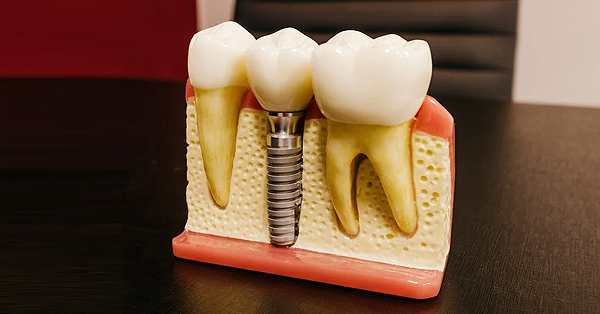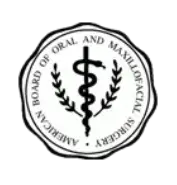Six Questions to Ask Your Oral Surgeon Before a Procedure
Patients are often anxious at the thought of any surgery, and oral surgery is no exception. Fortunately, the experts at Oral Surgery DC are here to help. Dr. Nkungula is committed to ensuring you have the information you need to feel comfortable and confident before your procedure.
Whether you were referred to Oral Surgery DC by your regular dentist or you are interested in an elective treatment, knowing what to expect is key to your peace of mind. These are the six questions to ask your oral surgeon as you review your treatment plan.
What Can I Do to Prepare Before My Oral Surgery?
The best way to ensure that your oral surgery goes smoothly is to be fully prepared. You can ask your oral surgeon for details on what you can do before and after the procedure for best results.
For example, in most cases, you should refrain from eating or drinking anything for at least six hours before your oral surgery. It's also important to know that smoking and vaping are discouraged in the 12 hours before your oral surgery. Nicotine makes it harder for your body to heal.
Asking how long the procedure takes is helpful for preparation. While your oral surgeon won't be able to tell you the exact moment you will be ready to go home, it is possible to share the average duration based on experience with similar procedures. That allows you to make arrangements for transportation and any other support you will need after your oral surgery.
Finally, your oral surgeon is likely to recommend that you spend at least 24 hours resting and recovering from your procedure. Driving, decision-making, and other important tasks may be difficult immediately following oral surgery.
How Long Is the Standard Recovery Period?
There are two good reasons to ask how long the average recovery period is for your type of oral surgery. First, you can plan for time away from work and enlist extra help from friends, family, and caretakers if you will need it.
Second, many patients find that it is easier to manage through periods of discomfort when they know that discomfort is likely to end soon – and if it doesn't, they know when it is time to let their oral surgeon know that something isn't quite right.
What Are the Risks or Potential Complications of This Procedure?
No procedure is completely without risk, and complications can occur no matter how smoothly the actual surgical procedure goes. Understanding the risks and potential complications of your oral surgery is a must, so you can make the decision that is right for you.
As your oral surgeon reviews the risks and complications of a procedure, they will also let you know what to look for once you go home. For example, if an infection is a common complication of your procedure, you will know how to identify the signs early so you can get the right treatment before it becomes a serious issue.
What Are the Options for Sedation and Pain Relief?
Anxiety is common before and during oral surgery, and the procedures can be downright painful. Of course, local anesthesia during the procedure is standard practice. However, your oral surgeon wants you to be as comfortable as possible throughout the procedure and afterward, so they will offer additional sedation and pain relief options appropriate to your situation.
Be sure to make your oral surgeon aware of your medical history and any prescribed or over-the-counter medications you already take. Talk through your concerns, your preferences, and any other relevant factors to create a sedation and pain relief plan that meets your needs.
What Aftercare Is Required and What Restrictions Will I Have?
As with any other medical procedure, you will need time to heal after your oral surgery. That begins with taking special care to get the rest you need to recover. In addition, there may be strictly off-limits activities, like smoking, vaping, or sucking through a straw. This is relevant when wisdom teeth are removed, for example, because the sucking motion can dislodge the blood clot over your jawbone, leading to serious complications.
You may also be required to refrain from certain foods while you are healing — in most cases, that includes hard foods like nuts and candies. Soft foods like yogurt, oatmeal, scrambled eggs, applesauce, and smoothies are much better for a healing mouth.
There is often a special oral hygiene routine to follow until you are back to 100 percent. For example, you may be asked to rinse with a saltwater solution or pass on regular brushing for a period. Understanding aftercare and restrictions before your procedure allows you to plan ahead and obtain any supplies you will need beforehand.
What Exactly Does My Procedure Involve?
Some patients like to know the details of their procedures, while others prefer a high-level overview. If you want a step-by-step explanation, let your oral surgeon know. On the other hand, if you are more comfortable with the basics necessary to give informed consent, that's okay, too. It's perfectly normal for patients to find that too much information increases their anxiety levels.
Remember, open communication is a must when undergoing oral surgery and sharing any questions or concerns before your procedure will ensure the best possible outcome. With the right information, you can maximize the likelihood of a fast, uncomplicated recovery so you can get back to your normal routine as soon as possible.
If you would like to learn more about oral surgery options, contact the experts at Oral Surgery DC today.






4.9 Stars
based on 134 reviews
5 Stars
based on 11 reviews
5 Stars
based on 11 ratings